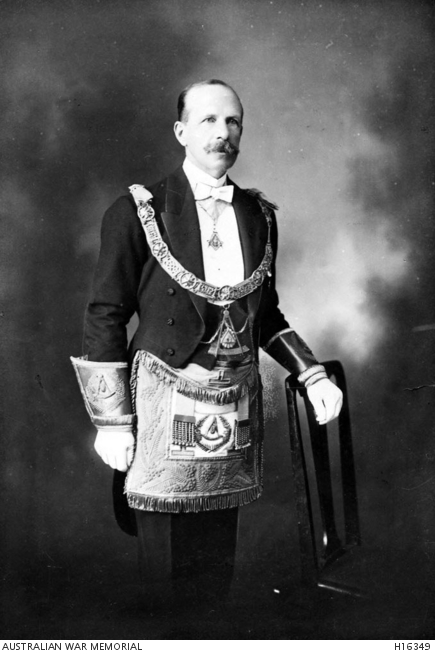Get Today in Masonic History into your Inbox. Sign up today for one of our email lists!
Need an article for your Trestleboard/Newsletter see our Use Policy
William Ellison-Macartney is Born

Today in Masonic History William Ellison-Macartney is born in 1852.
William Ellison-Macartney was an Irish politician.
Ellison-Macartney was born William Grey Ellison on June 7th, 1852 in Dublin, Ireland. In 1859, with Ellison-Macartney was seven, his father changed the family name to Ellison-Macartney as a condition of inheritance from a maternal uncle. Ellison-Macartney was educated at Eton and Exeter College in Oxford. He particularly took an interest in the law and was called to the Bar in 1878.
In politics, Ellison-Macartney was an Irish Unionist, believing Ireland needed to maintain it's place as part of the United Kingdom instead of Home rule. He became grand secretary of the Orange Institution, more commonly known as the Orange Order in Ireland.
In 1885, Ellison-Macartney was elected to the House of Commons. The following year he convened a meeting which later became the Irish Unionist Party. He served as the whip for the party. In 1895, he was appointed the Parliamentary and Financial Secretary to the Admiralty. He held the position until 1900 when he was replaced. As a consolation he was made a member of the Privy Council.
It was also in 1900, when Ellison-Macartney's political fortunes began to wane. He was criticized in various papers in Ireland. He retired from politics in 1903 when he received various government appointments.
Starting in 1903, Ellison-Macartney served as Deputy Master of the Royal Mint. He held the position until 1913. In 1908 he became High Sheriff of Antrim.
In 1912, Ellison-Macartney was appointed as Governor of the Australian state of Tasmania. This was highly controversial because of Ellison-Macartney's stance on Home rule. There were concerns Ellison-Macartney generated a conflict with Tasmanians who supported Irish Home Rule. In 1914 there was a constitutional dispute which Ellison-Macartney presided over. Neither the Liberal nor Labor party could form a government. Initially Ellison-Macartney ordered the dissolution of parliament and a new election to be held which did not help the situation. When no government could still be formed, Ellison-Macartney turned to the opposing party to form a government, with the condition a new election was held. Once the government was formed neither party wanted a new election and Ellison-Macartney was overridden. This clearly frustrated Ellison-Macartney and affected his future dealings in Australia.
In 1917, Ellison-Macartney was made the Governor of Western Australia. New problems and some of his old problems made this an unhappy tenure for Ellison-Macartney. He was very vocal about his frustrations over the issues in Tasmania, which caused many of his constituents to view him in a poor light and wary of his attitude. He also had to deal with the post World War I economic depression. His term ended in 1920 when he returned to England.
Ellison-Macartney passed away on December 4th, 1924 in Chelsea, London, England.
Ellison-Macartney was initiated in 1872 to Apollo University Lodge No. 357. When he returned to Ireland he joined Lodge Cappagh No. 350 and then Concord Lodge No. 332. In 1889 he became a founding member of Border Lodge No. 482. When he became the Governor of Tasmania he agreed to become the Grand Master of the Grand Lodge of Tasmania and was installed in 1914.
This article provided by Brother Eric C. Steele.

